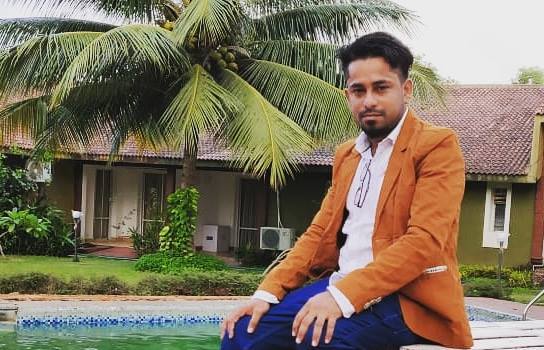Abinash Padhan, an M Tech from Sonepur, has created a space for himself in the documentary film circuit. He is one of many youngsters today who are making documentary and short films to create awareness on social issues. The shorts directed by Abinash have been screened at several Indian and international film festivals and received well by viewers as well as critics. The postgraduate engineer from Veer Surendra Sai University of Technology (VSSUT), Burla, tells Orissa POST about his journey in filmmaking.
Born to Mirabati and Dayasagar Padhan of Dunguripali, Abinash says, “In the beginning, I used to make short films with my friends using mobile phones. I was inspired to carry on after these films were appreciated. I shot my first proper film while pursuing M Tech at VSSUT. It was also received well. Success encouraged me to do more and more films.”
Abinash’s The Right Glass has been screened at more than a hundred international film festivals. Most of his films are based on social issues and human interest stories.
Speaking about one of his pet projects, Abinash says, “I met this man called Arun who has a cycle repairing shop near VSSUT. His parents were doctors but died in a boat accident. The film portrays his comfortable life when he was with his parents and his struggle after their death. I hope the film will inspire those who have lost interest in life after some tragedies. It won the best film award at Shristi Film Festival, Bhubaneswar. After this success, I worked on films highlighting the daily problems of the rural people.”
Abinash also did a film on the issue of human trafficking which garnered appreciation at many festivals in Odisha.
“My film Uansara Jahna (the Moon of New Moon Day) was about the plight of a young girl from a poor family. She belonged to the KBK (Koraput, Bolangir, Kalahandi) region, one of the most underdeveloped area of Odisha, and was forced into the flesh trade by a middleman who promised her work in a metro city. This apart, I also did Aahar in 2016 to create awareness on wastage of food. The film told the story of a beggar who couldn’t get a meal for days. On the other hand, there were people who waste food without a thought. The same year, I shot a few films on women-oriented issues. The films were about raising one’s voice against sexual harassment. Besides, a film on the relationship between a guy and a blind girl was much appreciated at the We Care Film Festival in New Delhi.”
Abinash has also directed several films on issues like disability, child abuse, child education, untouchability, water scarcity and atrocities on animals.
“In the year 2017, I did a documentary film titled God’s Own People. It was on the plight of the residents of Hatibari, a lepers’ colony in Sambalpur district. The film was screened at 4-FICAE Diseases International Short Film and Documentary Art Festival. Another film Water Boy bagged the third prize at the Kallola Film Festival-2018, Bhubaneswar. The film was about a thirsty kid whom I met on the Dunguripali railway station platform. The Celebration was adjudged the best film at the Miami International Short Film Festival. Lighting Their Dreams is another inspiring story. It won accolades at the In Short Film Festival, Nigeria. There’s a village named Samarpadar in Nuapada where people have no access to electricity. Lighting Their Dreams revolves around two children who generate electricity with the help of a Rs 500 note just after the demonetisation move by the government,” says Abinash.
“Documentary and short filmmaking has now become a passion for me. I am always on the lookout for a fresh idea wherever I travel. I mainly focus on rural areas where people still live in challenging conditions. It is painful to see that they still believe in witchcraft and black magic and depend on traditional therapies to fight diseases. So, my objective is to take up these issues with the administration through films,” he adds.
BRATATI BARAL, OP
